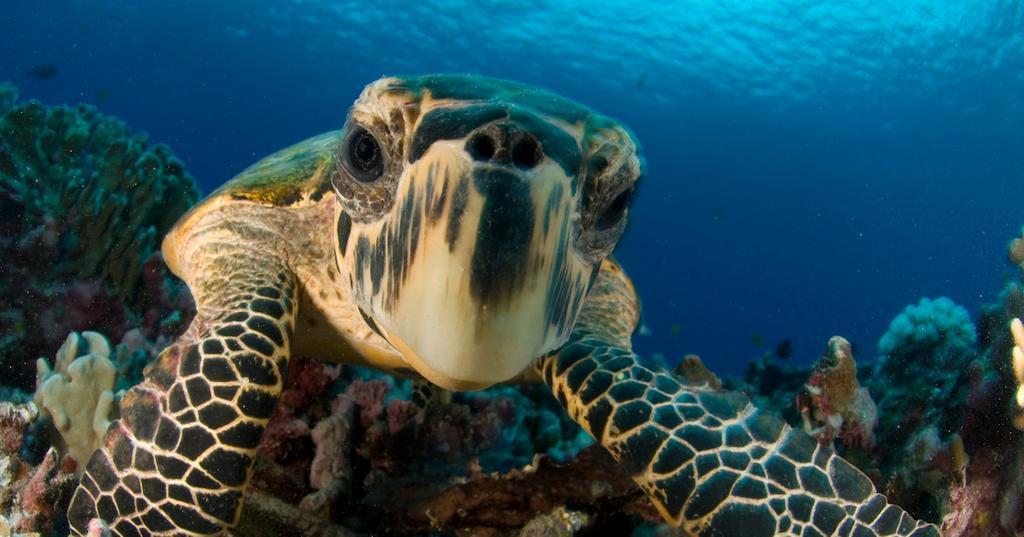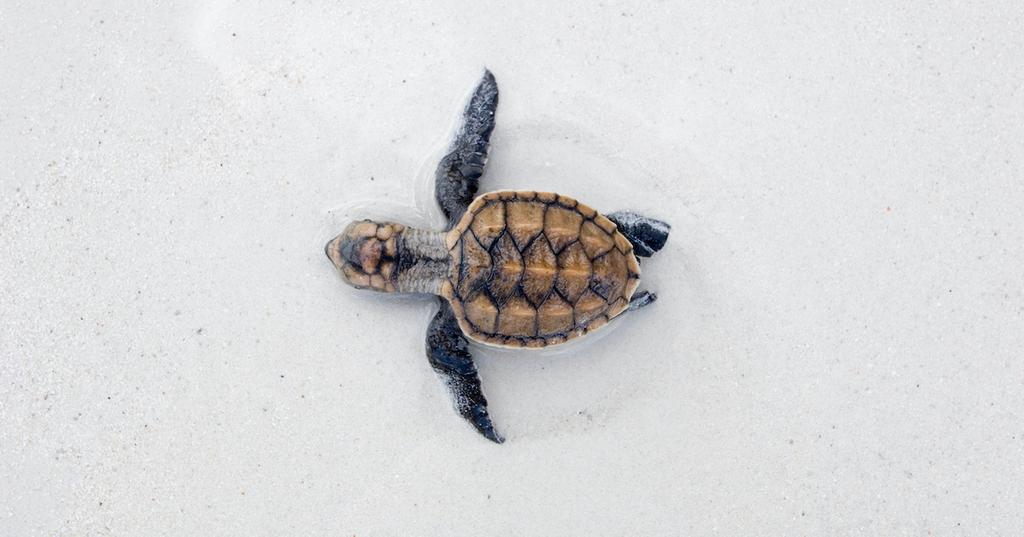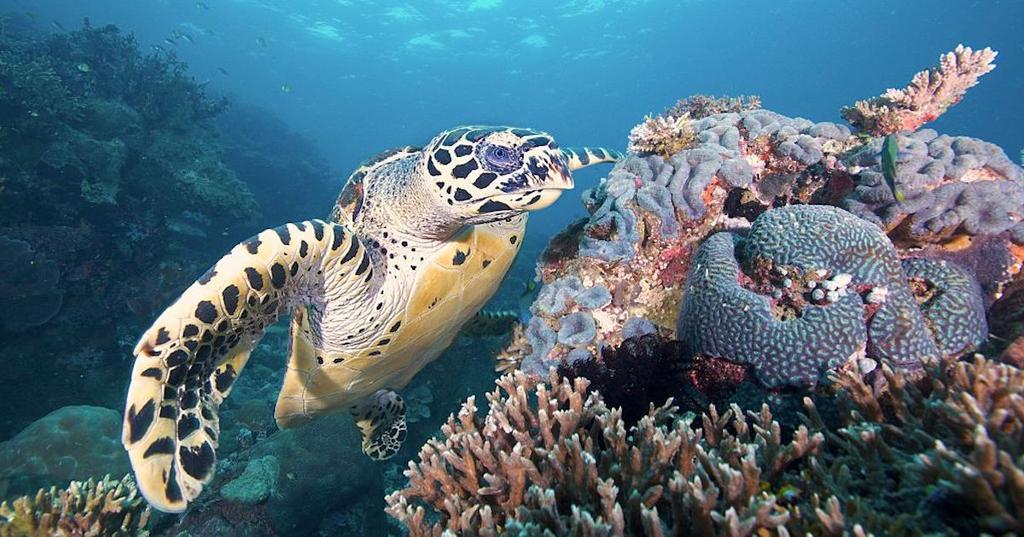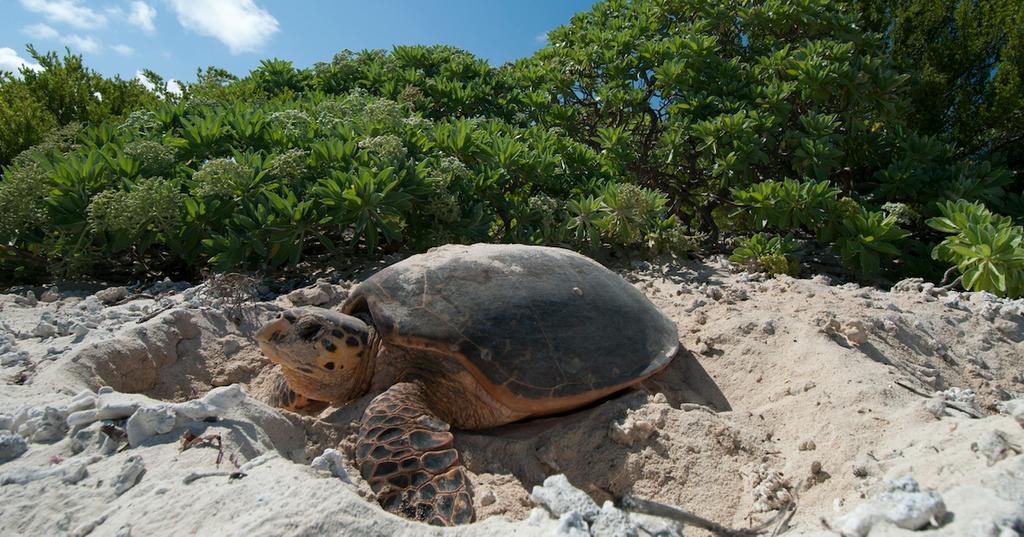
Without the usual crowds, sea turtles have started hatching on Brazil's empty beaches
By Lizzy RosenbergApril 1 2020, Updated 8:37 a.m. ET
Most of the human population is (finally) starting to take social-distancing and self-isolation seriously by staying indoors — allowing nature to take time to rebuild itself — dolphins have reportedly been spotted swimming through Italy's ports, China’s air pollution has dropped tremendously, and Venice's murky canals have apparently turned crystal clear.
Government officials in Brazil have started to observe an endangered species of sea turtles that are hatching on empty Brazilian beaches amidst the coronavirus lockdown, once again — this could be seriously ground-breaking for the coastal country's entire eco-system.

Brazil's deserted beaches are now home to Hawksbill turtles, once again.
A highly endangered sea turtle species called the Hawksbill has finally returned to Brazil's now-deserted beaches, according to The Guardian. About 100 of them have been spotted hatching slightly north of Pernambuco in Paulista, on beaches which locals have been forbidden to visit since last weekend.
About 68 cases of COVID-19 and five related deaths have been reported in the area, which is why the government ultimately decided to instill a partial shutdown, pushing residents to stay inside to (ideally) stop the spread of the virus. Only government workers allowed to remain outdoors were able to see the gorgeous turtles hatching... which honestly might be for the best.

Aside from crowded beaches and polluted waters, the Hawksbill population is impacted by poaching.
Hawksbills are most often found in warm, tropical oceans, according to WWF. They predominantly live off of sea sponges, which they pluck from coral reefs, in addition to sea anemones and jellyfish. Scientists believe the species is 100 million years old, and they are a seriously essential part of underwater eco-systems, coral reefs, and sea grass beds. Sadly, though, they are being heavily poached.
In addition to the Hawksbill's characterizing pointed snouts, they are also known for their scaly, jagged-looking shells, which — unfortunately — have enticed humans to poach them for their unique coloring and patterns. Their shells are sold for massive amounts of money in markets for jewelry and accessories, ultimately leading to severe endangerment.

A critically endangered hawksbill turtle (Eretmochelys imbricata) looking for food.
Hopefully, the turtle population in Brazil will continue to grow back.
Brazil has been monitoring the turtle population over the last several months, and clearly, the recent quarantine has kickstarted the Hawksbill's gradual repopulation. Hopefully, the number of turtles hatching on the Paulista beaches will continue to increase over the next few weeks.
“In all, 291 sea turtles were born on the coast of Paulista in 2020, with 87 green turtles and 204 hawksbill turtles. This time, due to preventive measures against the new coronavirus, the population was unable to closely monitor the birth," Paulista's Environmental Manager, Herbert Andrade told local news station NE 10.

Our thoughts and prayers are currently with the Paulista population who are currently experiencing a mandated quarantine due to COVID-19, but we're certainly rooting for the entire Hawksbill sea turtle population at this moment in time — hopefully it can continue to grow once normal beach-going recommences.
The best way to prevent contracting or spreading coronavirus is with thorough hand washing and social distancing. If you feel you may be experiencing symptoms of coronavirus, which include persistent cough (usually dry), fever, shortness of breath, and fatigue, please call your doctor before going to get tested. For comprehensive resources and updates, visit the CDC website. If you are experiencing anxiety about the virus, seek out mental health support from your provider or visit NAMI.org.
